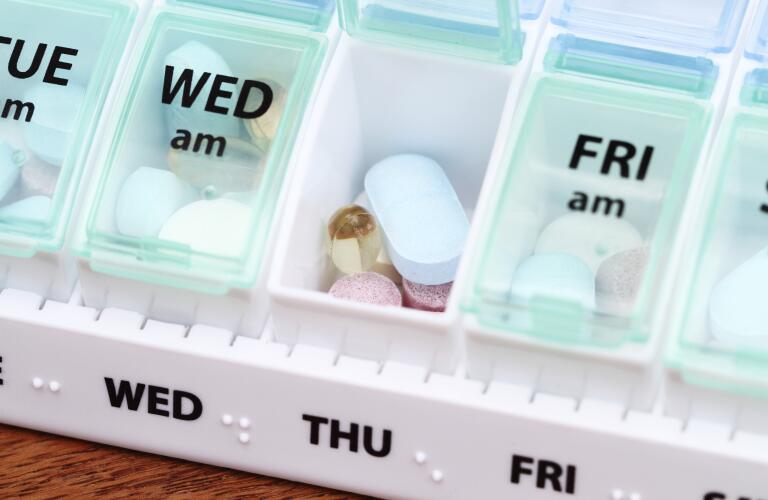
If you are coping with heart failure, you are not alone. More than 6 million people in the United States are currently living with heart failure, a condition in which the heart no longer efficiently pumps blood as well as it should to get oxygen out to every corner of the body. Many people with heart failure struggle to find the best ways to manage their condition effectively so they can carry out their activities of daily life. Every day, you should take certain steps to take care of yourself so you can live your life to the fullest.
Most people with heart failure need to take some combination of medications to improve their heart’s function and prolong their lives. Some of the commonly prescribed heart failure meds include:
- Diuretics
- Beta blockers
- ACE inhibitors
- Angiotensin II receptor blockers
- Angiotensin-receptor neprilysin inhibitors
- Aldosterone antagonists
- Calcium channel blockers (or inhibitors)
- Hydralazine and isosorbide dinitrate
Depending on your situation, your doctor might also suggest adding in a blood thinner (also known as an anticoagulant), digoxin, or a statin to lower your cholesterol.
But whatever medications you’re supposed to be taking, take them. They can’t help you if you forget to take them or don’t take them correctly as prescribed.
Get your scale out and make sure it’s working. Doing a daily weight check should be at the top of your “to do” list.
Ever wondered why it’s so important for people with heart failure to faithfully weigh themselves each day? When you monitor your weight carefully, you will be more likely to notice if you’re gaining any unexplained weight. People with heart failure sometimes gain “water weight.” That means they retain extra fluid because of their heart failure. Too much variation in your “dry weight,” and it could be a sign that something is really off. That’s also why your doctor may advise you to carefully monitor your fluid intake, too.
Just make the weigh-in part of your daily routine, like brushing your teeth or putting in contact lenses. Keep track of the numbers in a diary, chart, or an app, so it’s easier to notice any discrepancies.
When you plan out your meals and snacks, keep your heart health in mind. Think: lots of fresh fruit and veggies, whole grains, lean sources of protein, low-fat dairy, and nuts and legumes. Go easy on the red meat and food containing trans fats and saturated fats, and sugary drinks.
Your doctor will probably also advise you to cut back on your salt intake. Most people already eat too much salt, but this is a critical issue for people with heart failure. When you eat a lot of salt, you tend to retain fluid. That fluid can build up and make your heart failure worse.
People with heart failure are more likely to suffer from what the sleep experts call “disordered sleeping,” which includes sleep apnea. A very serious sleep disorder, sleep apnea occurs when you stop and start breathing, over and over, while you’re sleeping. If you have sleep apnea, you can’t afford to ignore it. Obstructive sleep apnea can make your heart failure worse. A sleep study can help your doctor learn more about your situation and determine the best way to treat it. You may be a candidate for continuous positive airway pressure (CPAP) therapy. So, if you’re not sleeping well, speak up! There may be a treatment option that could help you.
Don’t give in to the temptation to stay sedentary. Being active is a great way to improve your health and your quality of life. For example, a daily walk could be just the ticket for getting out and moving your body, building your strength and endurance and lifting your mood, too.
A few general tips:
- Start slow. Don’t launch yourself into an exercise program, even a walking program, without giving yourself some time to get acclimated. Start slow and gradually build up.
- Begin with a warm-up period and end with a cool-down period.
- Drink water when you are thirsty.
- Don’t ignore any warning signs. If you start feeling weak or sick, or your heart rate becomes rapid or regular, stop what you’re doing and rest.
Before embarking on any kind of exercise, be sure to run it by your doctor. Sometimes, certain activities may not be appropriate for you, and your doctor can weigh in with some guidance.
Stick with these self-care strategies and be sure to see your doctor for your scheduled follow-up visits. In between appointments, though, if you develop any new symptoms, don’t brush them off. Call your doctor if, for example, you start gaining weight or developing swelling in your legs or stomach. Anything that represents a change is worth getting checked out. It might be nothing, but it might be something that needs treatment.











